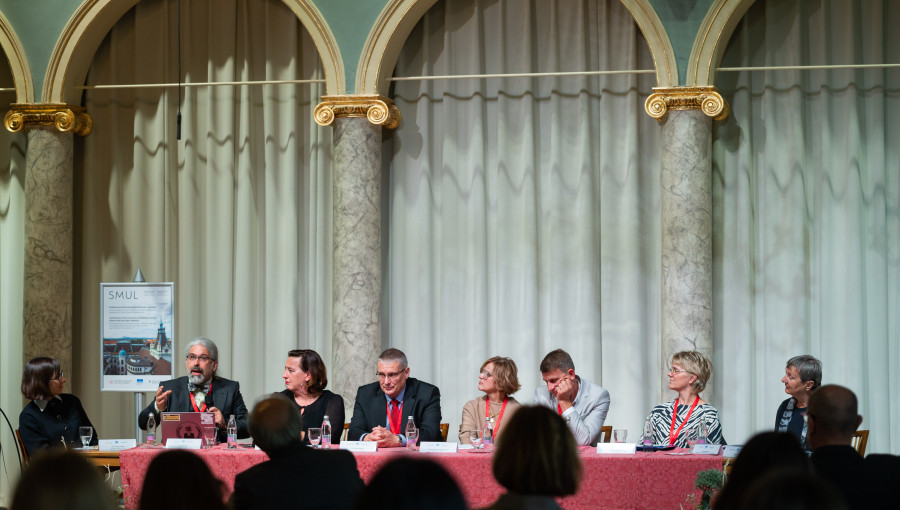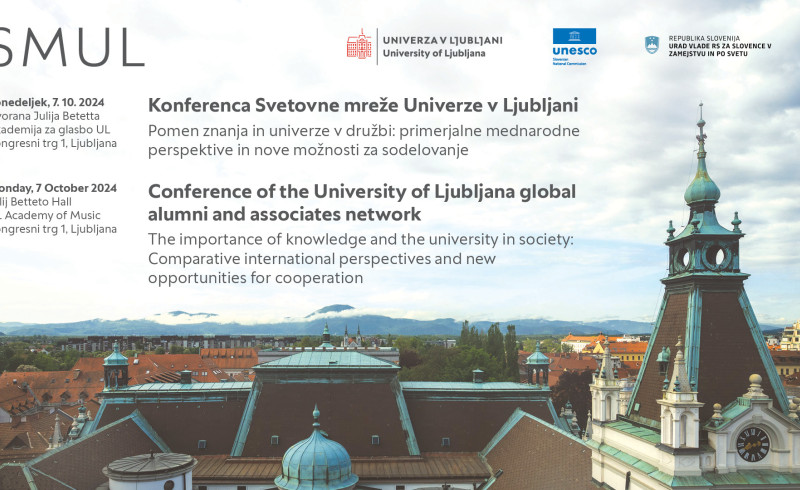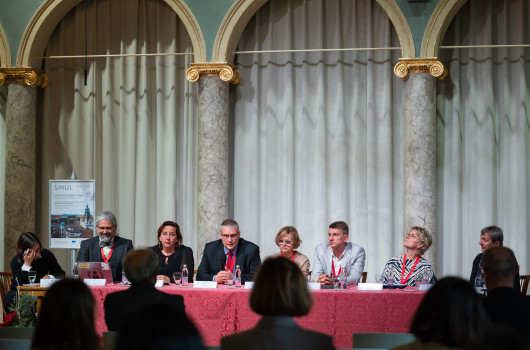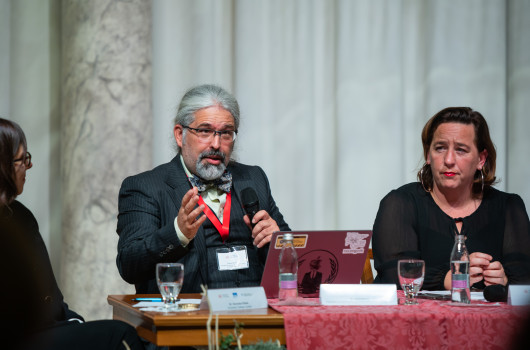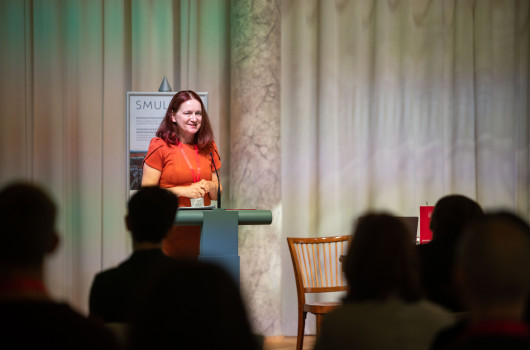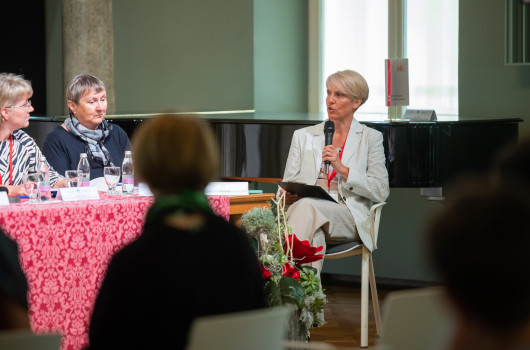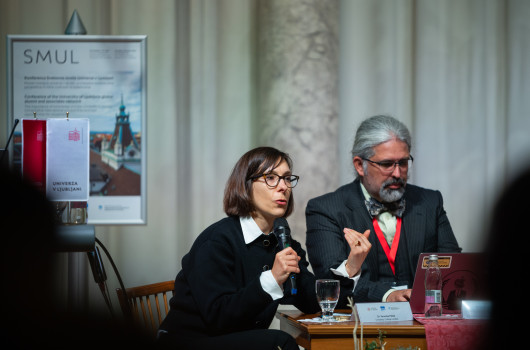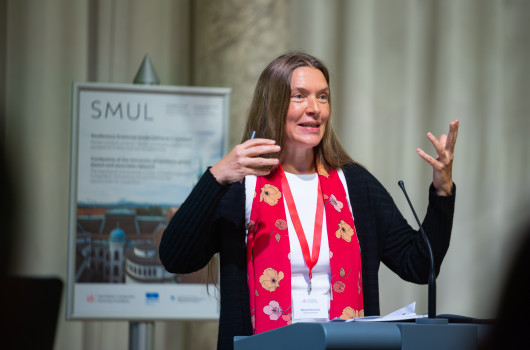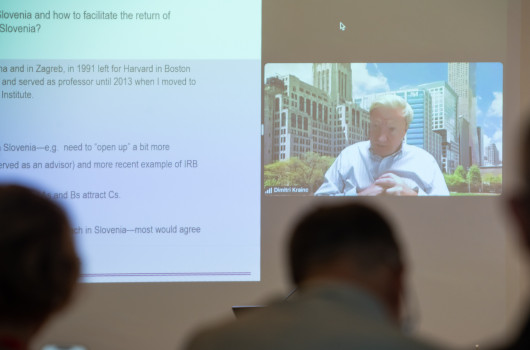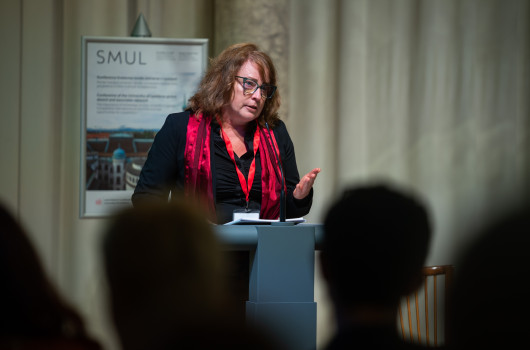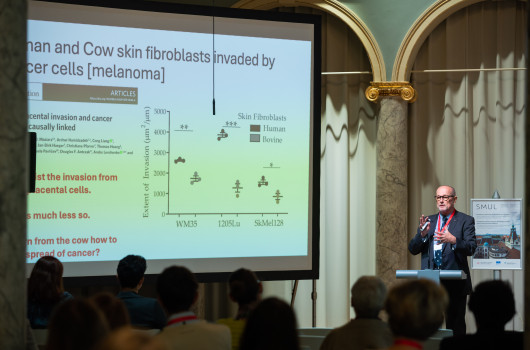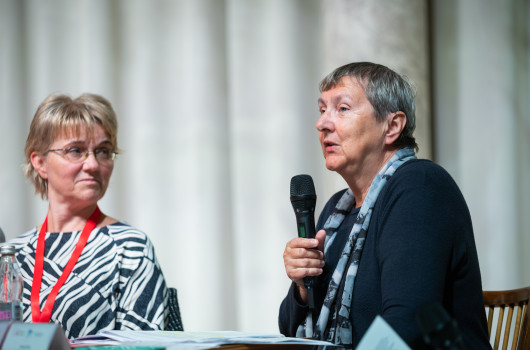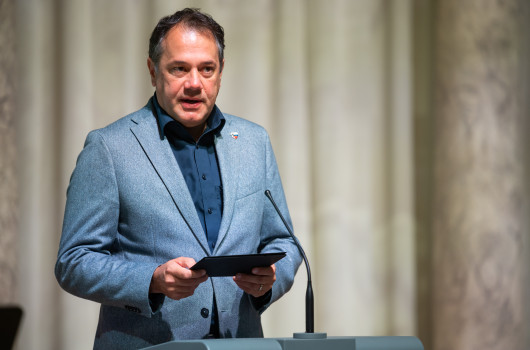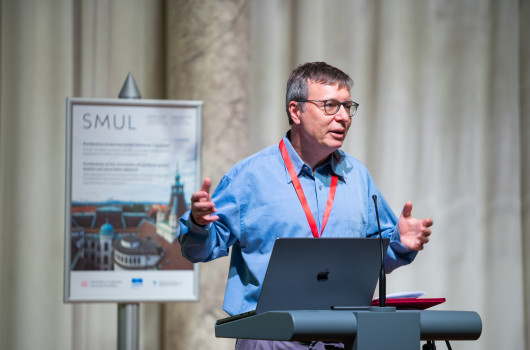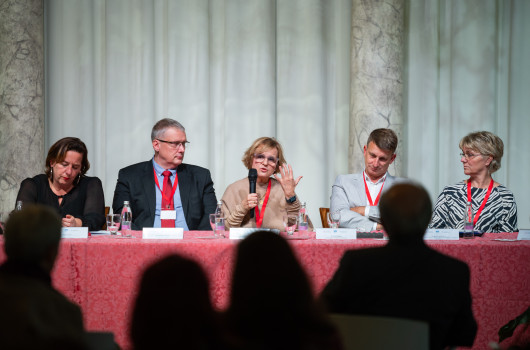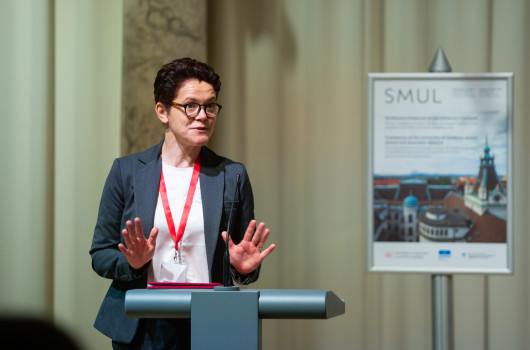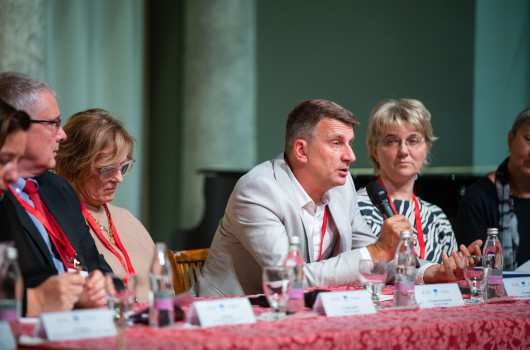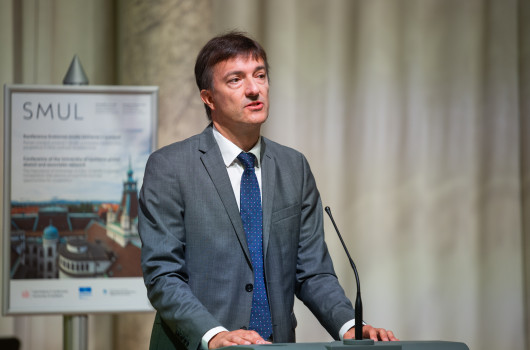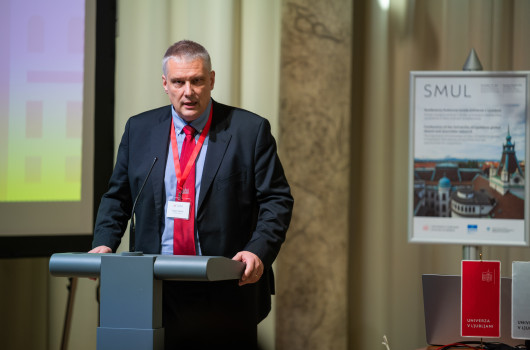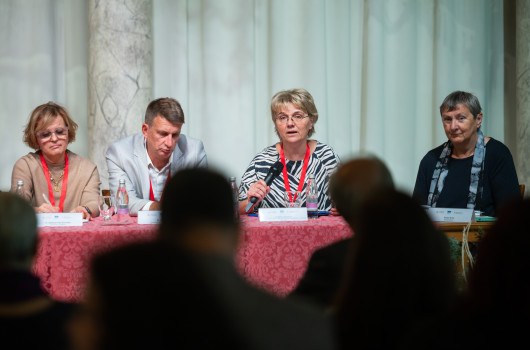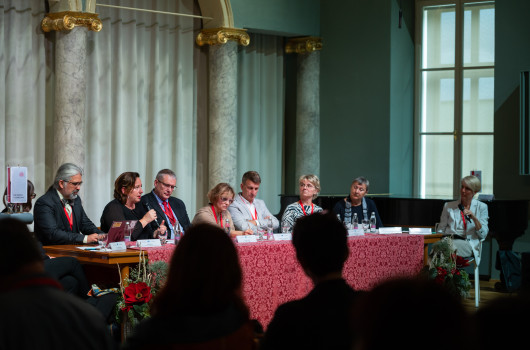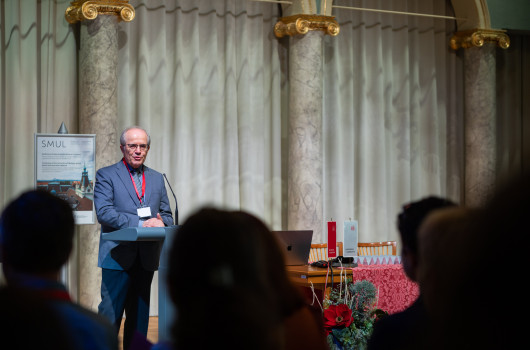SMUL Conference – The importance of knowledge and the university in society
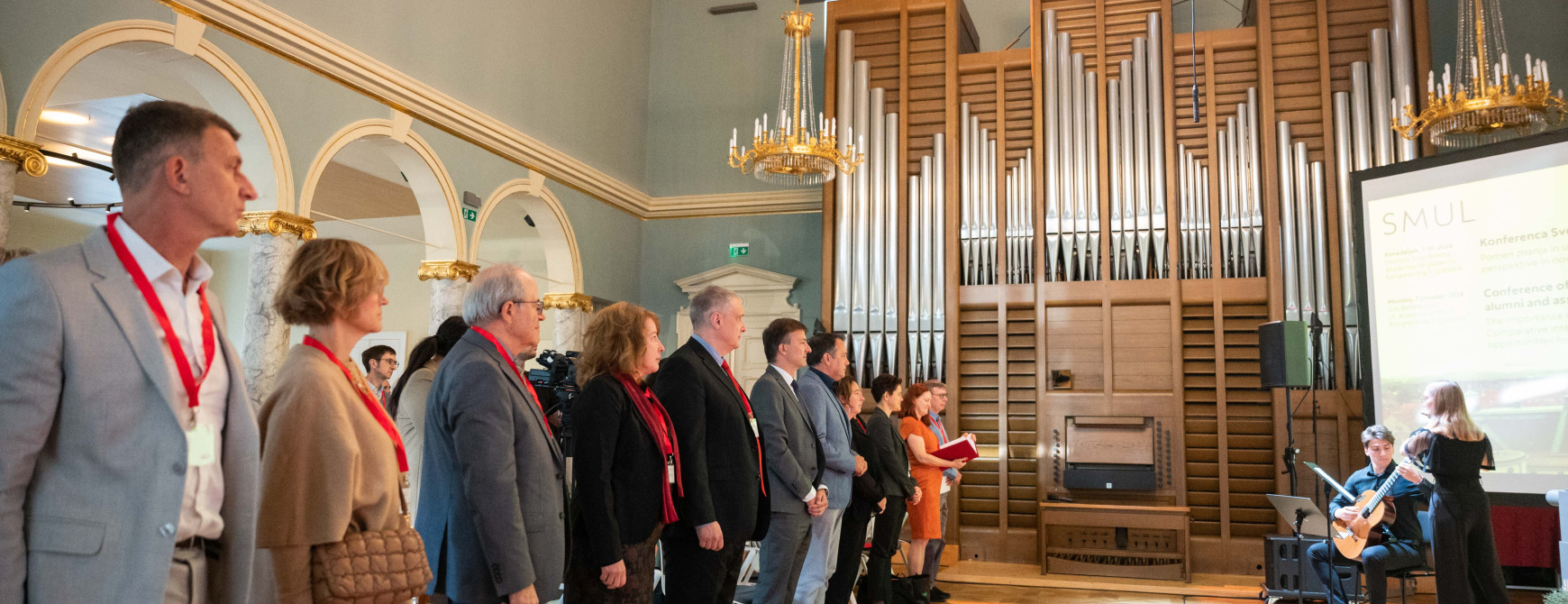
Boštjan Podlogar-STA
Date of publication:
On Monday, 7 October 2024, the Academy of Music hosted the first international conference of the University of Ljubljana Global Alumni and Associates Network (SMUL), entitled The importance of knowledge and the university in society: comparative international perspectives and new opportunities for cooperation. The event was held under the honorary patronage of the Slovenian National Commission for UNESCO.
Speakers from Slovenia and abroad discussed, among other things, the return of Slovenian experts from abroad, the importance of organised knowledge and the university in the modern world, and how knowledge can contribute to a fairer society.
The University of Ljubljana Global Alumni and Associates Network is an excellent example of harnessing the potential of international cooperation, but it is not only the university that has a global network – Slovenia as a whole has one as well, remarked Deputy Prime Minister and Minister for Slovenians Abroad Matej Arčon in his opening address. He noted that the Slovenian government had therefore developed and, to some extent, already adopted a set of concrete measures aimed at facilitating the return or relocation of Slovenian researchers, professors and professionals, should they choose to do so. At the same time, these measures will promote collaboration with economic and academic institutions in Slovenia.
The participants were also addressed by Dr Klementina Fon Tacer, President of the University of Ljubljana Global Alumni and Associates Network (SMUL), Dr Jure Gašparič, State Secretary at the Ministry of Higher Education, Science and Innovation, Dr Boštjan Markoli, Vice-Rector of the University of Ljubljana for Internationalisation and Quality, Dr Ksenija Vidmar Horvat, Vice-Rector of the University of Ljubljana for Study and Student Affairs and Vice-President of the Slovenian National Commission for UNESCO, and Dr Ivan Svetlik, former Rector of the University of Ljubljana and the driving force behind the establishment of the SMUL. In addition to the SMUL President, the event was moderated by two members of the SMUL Council: Dr Mihaela Pavličev, evolutionary biologist at the University of Vienna, and Dr Boštjan Kobe, Professor of Structural Biology at the University of Queensland.
The speakers at the conference discussed the importance and value of organised holistic knowledge, as well as the role of the university in contemporary society. They addressed the changes and new responsibilities that we now face. In this section of the conference, Dr Manja Klemenčič, Lecturer on Sociology at the UL Faculty of Education and the Department of Sociology at Harvard University; Dr Günter Wagner, Professor of Evolutionary Biology at Yale University and the University of Vienna; and Dr Dimitri Krainc, Professor of Neurology at Northwestern University, shared their views and opinions. The speakers emphasised that universities should serve as hubs for thinking, learning, research, and creativity. In a world where new technologies emerge at an incredible pace, fundamentally altering our lifestyles and work environments, it is crucial for researchers to engage deeply with their topics. At the same time, students must acquire sufficient knowledge to think critically and defend their viewpoints. They highlighted that data alone lacks value without human interpretation. Encouraging dialogue within the classroom is vital, and students tend to remember professors’ attitudes toward them. Professor Dimitri Krainc pointed out that, in the USA, professors are generally more approachable and available for student inquiries.
At the round table discussion, Slovenian scientists based at prestigious universities abroad shared their experiences regarding the challenges they encounter when considering a return to the country. While many do not have any immediate plans to return, they expressed a strong desire to collaborate more closely with Slovenian experts and students. Dr Uroš Seljak, Professor of Astronomy and Physics at the University of California, Berkeley, emphasised this by stating, “It doesn't matter where I am; what matters is what Slovenia can gain from me.”
The challenges of returning to Slovenia were discussed by (from left to right): Professor of International Law and Human Rights at University College London Dr Veronika Fikfak; Assistant Professor at the Faculty of Computer and Information Science, University of Ljubljana, formerly at the University of Cambridge and the University of Exeter Dr David Modic; State Secretary at the Government Office for Slovenians Abroad Vesna Humar; Professor of Metallurgy and Vice-Rector of the University of Ljubljana for Internationalisation and Quality Dr Boštjan Markoli; Professor and Rector at the University of Rijeka Dr Snježana Prijić-Samaržija; Professor of Astronomy and Physics at the University of California, Berkeley Dr Uroš Seljak; Head of the Institute for Slovenian Emigration and Migration at the Research Centre of the Slovenian Academy of Sciences and Arts (ZRC SAZU), Director of the European Master in Migration and Intercultural Relations programme at the School of Humanities at the University of Nova Gorica Dr Marina Lukšič Hacin; and a representative of the Ministry of Higher Education, Science and Innovation, Darinka Vrečko. The round table was moderated by mag. Nataša Briški.
Dr Jana Javornik from the University of Leeds explained her views on the future of higher education and the higher education system, pointing out that no institution is an island unto itself. Decisions made at a global level have a major impact on the functioning of local universities.

